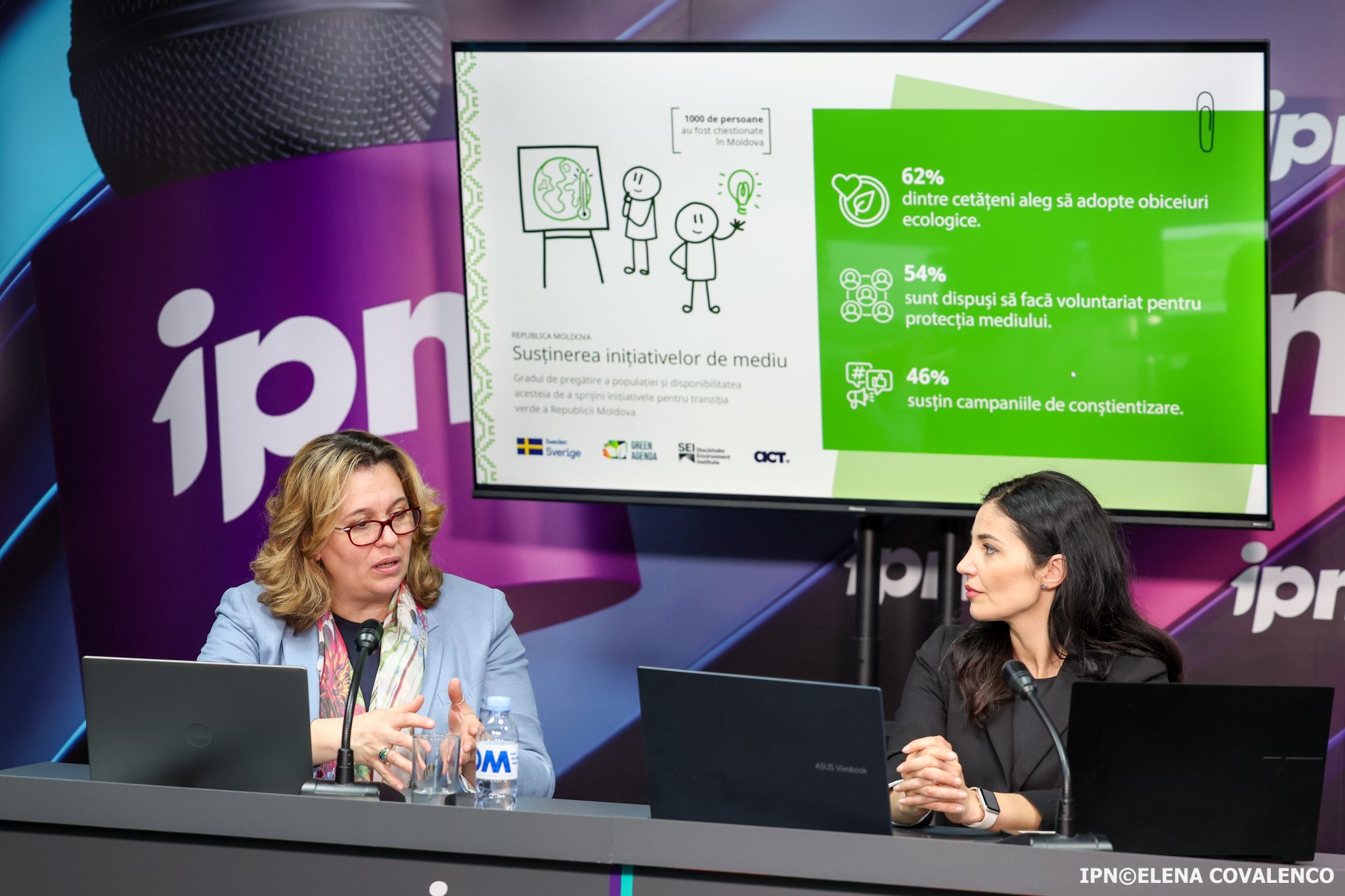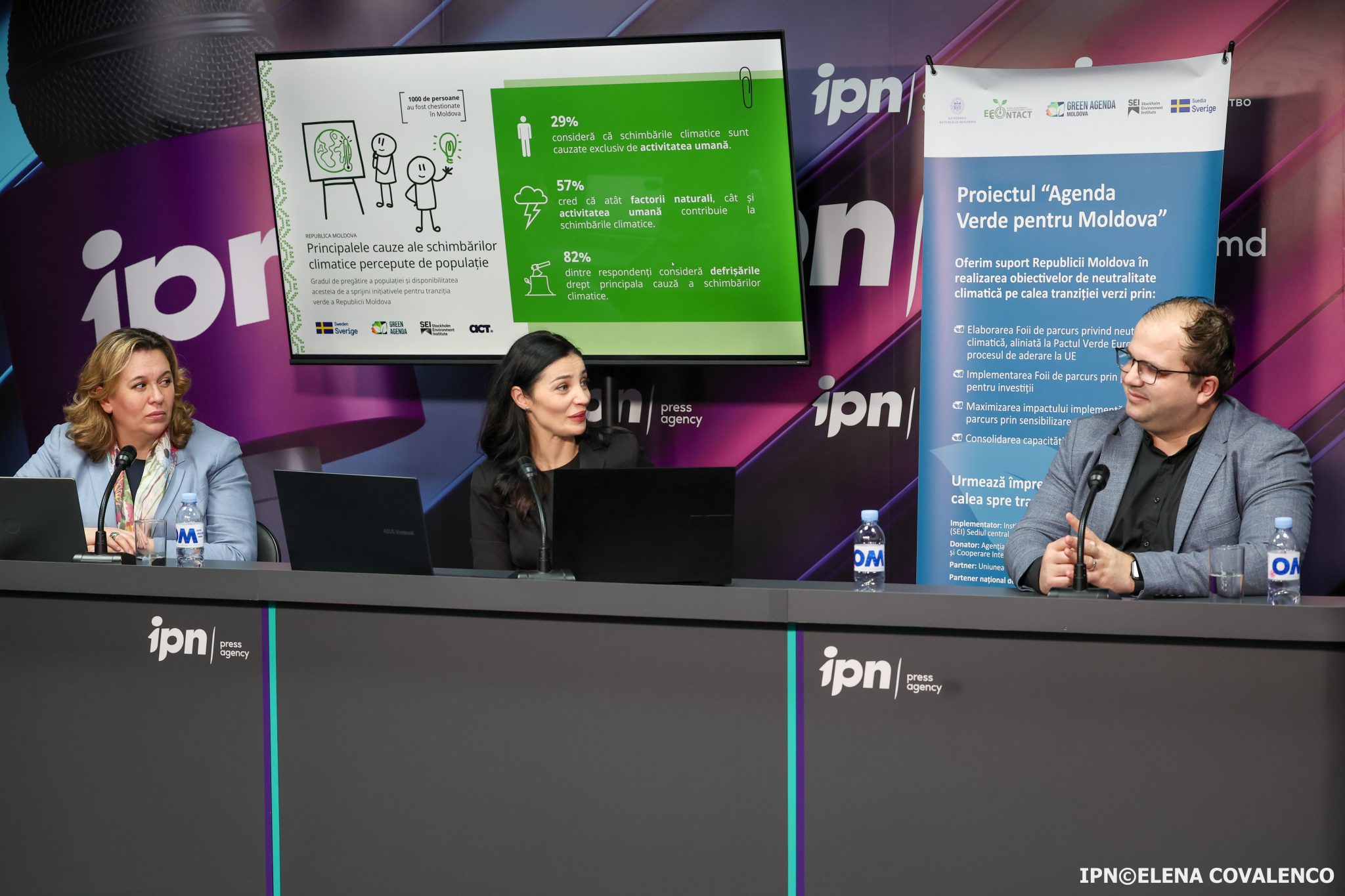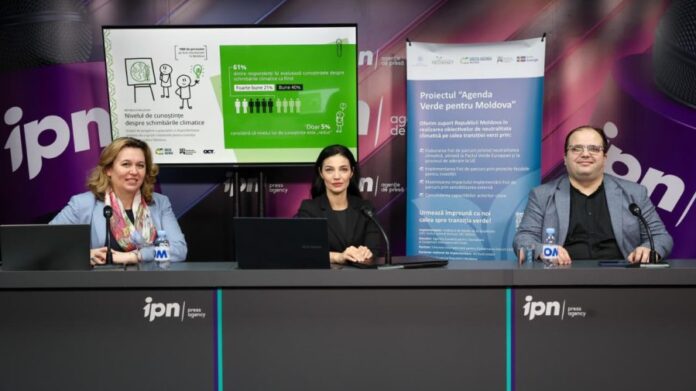A new study by the Stockholm Environment Institute (SEI) and ACT Global offers insights into Moldovans’ views on climate change, environmental priorities, and the green transition. It also provides policy recommendations for environmental and energy decision-makers.
Conducted under the “Green Agenda for Armenia, Georgia, Moldova, and Ukraine” project—funded by the Swedish International Development Cooperation Agency (Sida)—the study was presented at a public event in Chisinau. Experts, including Iordanca-Rodica Iordanov, co-leader of the Green Agenda project, and Stas Madan, program director at Expert-Grup, discussed its findings.
Climate Concerns and Personal Impact
Moldovans’ top environmental concerns include:
- Waste management (67%)
- Air quality (58%)
- Access to renewable energy (54%)
- Declining food quality (63%)
FOR THE MOST IMPORTANT NEWS, FOLLOW US ON TWITTER!
A majority (73%) feel personally affected by climate change, while 85% report negative health effects and 51% cite economic challenges caused by climate-related factors.
Although 76% see the green transition as necessary, only 38% have significantly changed their lifestyles to reduce environmental impact.

Sources of Climate Awareness
Most Moldovans believe they have good (40%) or very good (21%) knowledge of climate change, with only 5% rating their knowledge as poor.
Their main information sources vary by age and location:
- Television – preferred by those 45+, rural residents, and retirees.
- Facebook – is popular among professionally educated individuals aged 45-54.
- Family, friends, and colleagues – key sources for urban dwellers and those with higher education.
Energy Dependency and Renewables
Concerns over Moldova’s energy dependence are widespread (65%). However, there is strong support for renewable energy:
- 78% of young people (25-34) favor solar and wind power as alternatives.
- 71% consider renewables more stable than fossil fuels.
- 50% of higher-educated respondents believe the government should provide financial incentives for green energy adoption.

European Integration and International Support
- 64% see international organizations and donors as crucial for environmental protection.
- 40% believe EU integration significantly influences Moldova’s environmental policies.
Public Involvement and Barriers
While 57% actively participate in environmental protection (mainly through recycling and waste reduction), barriers to greater involvement include:
- Lack of time (62%)
- Absence of eco-friendly habits (39%)
- Limited awareness of environmental initiatives (34%)
Next Steps
With input from 1,000 respondents and a margin of error of ±3.1%, the study highlights strong public support for sustainability but underscores the need for:
✔ More awareness campaigns
✔ Expanded financial incentives for renewables
✔ Addressing economic and social challenges
These measures will be crucial in ensuring Moldova’s successful transition to a greener economy.
The full report is available in Romanian and English.


